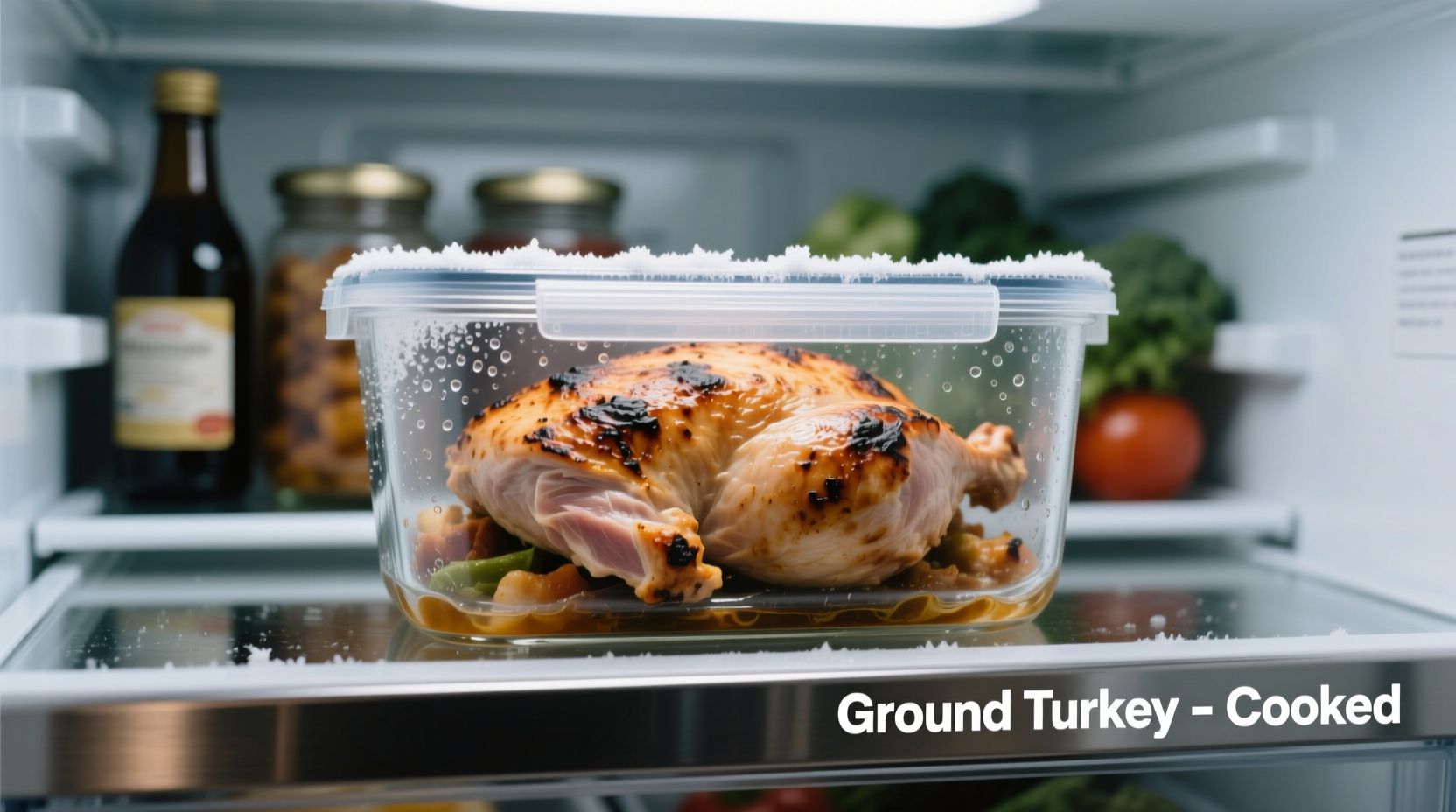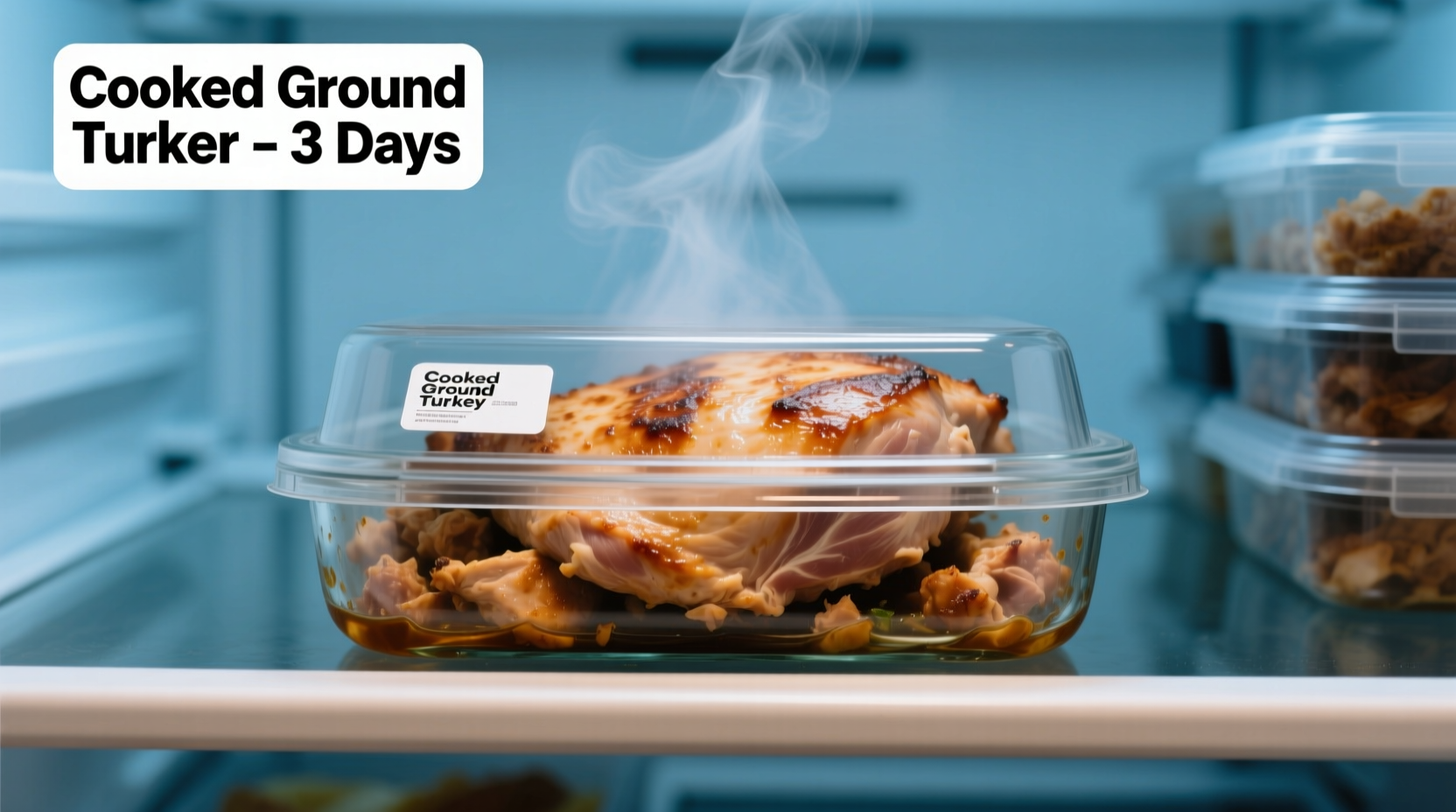Ever cooked a big batch of ground turkey for meal prep only to wonder how long it'll stay fresh in your fridge? You're not alone. Proper food storage is crucial for both safety and quality, especially with ground meats that spoil faster than whole cuts. Getting this wrong could mean wasted food or, worse, a case of food poisoning.
Why Cooked Ground Turkey Has a Limited Shelf Life
Ground turkey spoils more quickly than whole turkey pieces because the grinding process increases surface area exposed to bacteria. Once cooked, it enters what food safety experts call the “danger zone” if not handled properly. The USDA defines the danger zone as temperatures between 40°F and 140°F (4°C to 60°C), where bacteria multiply rapidly.
| Storage Condition | Recommended Timeframe | Source |
|---|---|---|
| Refrigerator (40°F or below) | 3-4 days | USDA Food Safety and Inspection Service |
| Freezer (0°F or below) | 2-6 months | FDA Food Code |
| Room temperature | 2 hours max (1 hour if above 90°F) | CDC Food Safety Guidelines |
Maximizing Freshness: Your Step-by-Step Storage Guide
Following proper storage techniques can help you get the full 3-4 days of freshness from your cooked ground turkey:
- Cool quickly: Divide large portions into shallow containers to cool faster. Don't leave cooked turkey at room temperature for more than 2 hours.
- Use airtight containers: Store in glass or BPA-free plastic containers with tight-fitting lids. Alternatively, use heavy-duty freezer bags with air pressed out.
- Label everything: Note the date you cooked the turkey on the container. "When in doubt, throw it out" is the golden rule of food safety.
- Store properly in fridge: Place containers on middle or lower shelves, never in the door where temperatures fluctuate.

Recognizing Spoiled Cooked Ground Turkey
Before consuming refrigerated cooked ground turkey, perform these safety checks:
- Smell test: Fresh cooked turkey has little odor. A sour, ammonia-like, or unpleasant smell indicates spoilage.
- Texture check: Properly stored turkey should feel moist but not slimy. Any sticky or slippery film means it's gone bad.
- Visual inspection: Look for grayish-green spots or significant color changes beyond normal browning.
- Mold presence: Any visible mold means the entire batch should be discarded, not just the affected portion.
When evaluating cooked ground turkey safety, remember that harmful bacteria like Salmonella and Campylobacter don't always produce noticeable changes in appearance or smell. If your turkey has been in the fridge beyond 4 days, it's safest to discard it regardless of appearance.
Extending Your Cooked Ground Turkey's Life
If you won't use your cooked ground turkey within 3-4 days, freezing is your best option for longer storage:
- Portion into meal-sized amounts before freezing
- Use freezer-safe containers or heavy-duty freezer bags
- Remove as much air as possible to prevent freezer burn
- Label with contents and date (use within 2-6 months for best quality)
- Thaw overnight in the refrigerator, not at room temperature
When reheating frozen cooked ground turkey, ensure it reaches an internal temperature of 165°F (74°C) as measured by a food thermometer. This kills any potential bacteria that may have developed during storage.
Special Considerations for Food Safety
Certain situations require extra caution with cooked ground turkey storage:
- Leftovers from restaurants: Consume within 3 days as you don't know how long it was held before packaging
- Meal prep containers: Even if individually dated, use within 3 days as repeated opening introduces bacteria
- Power outages: If your refrigerator was above 40°F for more than 2 hours, discard perishable foods
- Traveling with food: Use insulated coolers with ice packs if transporting cooked turkey
According to the USDA Food Safety and Inspection Service, approximately 48 million people get sick from foodborne illnesses each year in the United States. Proper handling of cooked ground turkey is a simple step you can take to reduce your risk. When following safe food practices, you're not just preserving your meal—you're protecting your health and the health of those you feed.
Can I eat cooked ground turkey after 5 days in the fridge?
No, USDA guidelines state cooked ground turkey should be consumed within 3-4 days when refrigerated at 40°F or below. After 5 days, bacterial growth may reach dangerous levels even if the food appears normal.
How can I tell if cooked ground turkey has gone bad?
Signs of spoiled cooked ground turkey include a sour or unpleasant odor, slimy texture, grayish-green discoloration, or visible mold. However, harmful bacteria often don't produce noticeable changes, so when in doubt after 4 days, discard it.
Does freezing cooked ground turkey affect its quality?
Freezing preserves safety indefinitely at 0°F, but quality is best within 2-6 months. Proper packaging prevents freezer burn. Thaw in the refrigerator overnight and use within 3-4 days after thawing. Texture may be slightly less firm after freezing.
What's the proper temperature for storing cooked ground turkey?
Your refrigerator should maintain 40°F (4°C) or below, with the ideal temperature being 35-38°F (1.7-3.3°C). Use an appliance thermometer to verify your fridge temperature, as built-in dials aren't always accurate.
Can I reheat cooked ground turkey multiple times?
It's safest to reheat only the portion you plan to eat immediately. Each cooling and reheating cycle moves food through the danger zone (40°F-140°F), increasing bacterial growth risk. Never reheat the same portion more than once.











 浙公网安备
33010002000092号
浙公网安备
33010002000092号 浙B2-20120091-4
浙B2-20120091-4